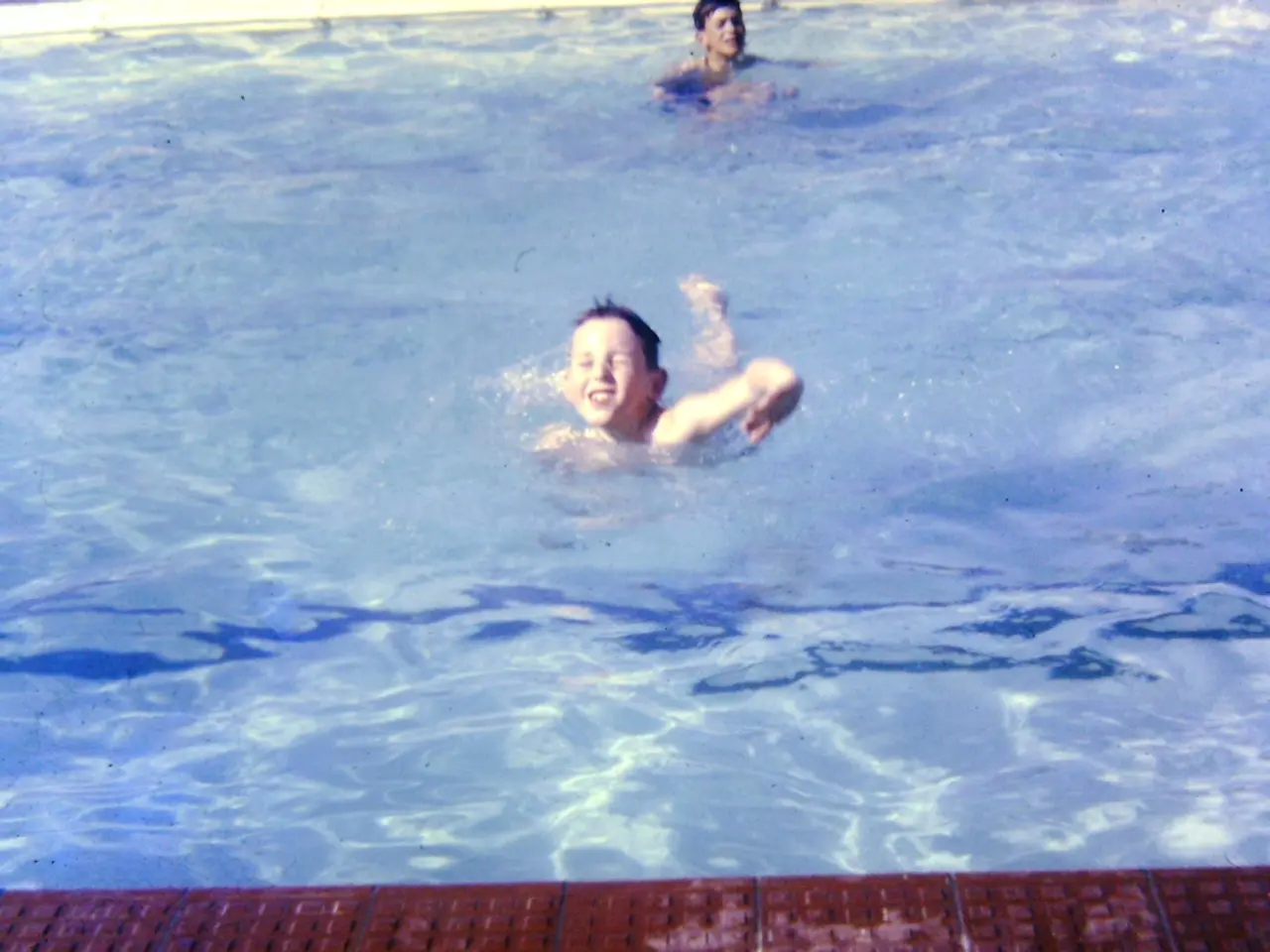Parents ought to enhance their participation in swimming lessons: call from swim teachers - Parents urged to take a more active role in their children's swimming activities by prominent swimming athletes.
In recent years, a concerning trend has emerged in Hesse, Germany, as the number of drowning incidents involving children under the age of 10 has risen. This year alone, a nine-year-old girl tragically lost her life in a municipal pool, and statistics show that this is not an isolated incident.
According to reports, two people drowned in September, and one person each in February, April, June, and December. Among the victims was a child under 10 in 2024. This alarming statistic has led experts to question the current approach to teaching children swimming skills and emphasise the importance of parental involvement.
Maximilian Faber, managing director of the Hesse state association of the German Swimming Teachers' Association, stated that swimming lessons alone are not enough. He emphasised that what is learned needs to be reinforced by parents, grandparents, or other relatives. Faber and his colleagues observe an increasing number of children who cannot swim properly, and these children are getting older.
Eric Voß, head of training and further education at the German Swimming Association, sees swimming as a fundamental life skill, comparing it to running and cycling. He believes that older children often struggle more with learning to swim due to a stronger fear of the water, especially the fear of submerging and imagining possible consequences.
Parents in Germany are increasingly relying on lifeguards and swimming lessons, rather than accompanying their children to the swimming pool. In public swimming pools, a "full-coverage mentality" is observed, where parents pay for admission and leave their children unsupervised, relying on staff or other guests to watch them. This lack of parental supervision has been identified as a significant factor in the rising number of drowning incidents.
Michael Hohmann, president of DLRG Hesse, believes it is the responsibility of parents, grandparents, aunts, and uncles to ensure that children can swim safely. He criticised the lack of parental attention, such as when parents are preoccupied with their phones instead of watching their children in the water. Hohmann also emphasised the danger of this trend, stating that many small children drown in home pools or garden ponds due to a lack of parental supervision.
To combat this issue, organisations in Germany often encourage parental involvement in children's extracurricular activities, including swimming lessons, through measures such as information sessions and counseling for parents about the importance of swimming skills and water safety, flexible scheduling of lessons to accommodate parents' availability, providing subsidies or financial support to reduce cost barriers, organising family swim days or parent-child classes to actively engage parents with their children’s learning, and collaboration between local swimming clubs, schools, and municipal authorities to promote accessible swimming programs.
However, without specific sources or evidence from the provided search results, it is not possible to confirm which particular measures are currently advocated by German organisations in Hesse. For precise and up-to-date information on this topic, it is recommended to consult local swimming associations in Hesse, German sports federations, or municipal websites related to youth sports and leisure activities.
Encouragingly, the number of drowning deaths in public waters in Hesse decreased last year, with 12 people drowning in 2024 compared to 18 in the previous year. Learning to swim is easier in early years, with the ideal age being between five and six years old, according to Faber. However, the numbers are naturally high during the summer months, with six drowning deaths recorded in July 2024 alone.
The late effects of the COVID-19 pandemic and insufficient school swimming lessons, particularly the lack of qualified teachers and water facilities, have contributed to this trend, according to Faber. With the increasing awareness of this issue and calls for increased parental involvement, there is hope that the number of drowning incidents will continue to decrease in the future.
In light of the rising number of drowning incidents among children in Hesse, some experts suggest that their lifestyle could be impacted by incorporating more home-and-garden activities that involve water safety, such as vocational training in swimming or pool maintenance. Additionally, to complement swimming lessons and overcome the fear of water, vocational training in lifeguarding or water rescue could be beneficial for older children, promoting increased competency and a safer home-and-garden environment.




